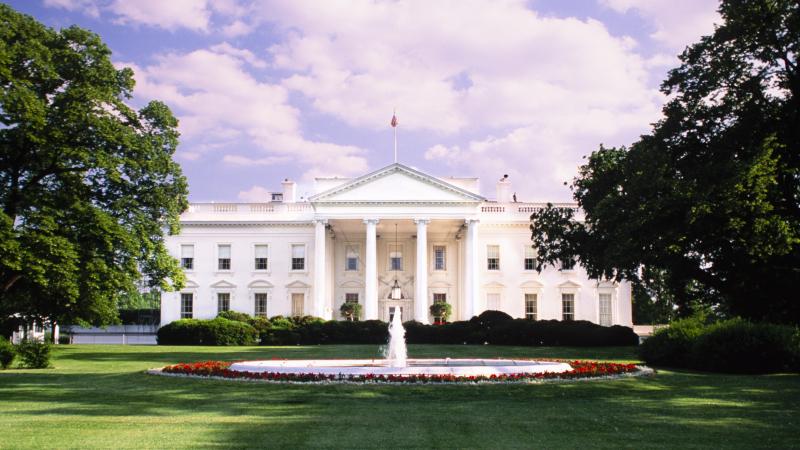University of Oregon claims new authority to punish off-campus student conduct
School was named among the 10 worst colleges for free speech by the Foundation for Individual Rights in Education in 2017.
A sweeping new disciplinary policy at the University of Oregon is drawing attention from legal experts for potentially subjecting students to its jurisdiction regardless of where they are, physically or online.
The Board of Trustees approved the resolution last month. It gives the university authority to punish off-campus student behavior when UO has a "clear and distinct interest as an academic institution" in that behavior.
For that interest to be met, the behavior must cause "substantial disruption to the University community or any of its members," involve "academic work or any University records, documents, or identifications," or "seriously" threaten "the health or safety of any person."
The pre-vote resolution was flagged by economics professor Bill Harbaugh, who runs the watchdog blog UO Matters. Both he and the Daily Emerald note that the UO Senate was not consulted on the resolution, which shortly followed several large backyard parties that went viral on social media.
The changes are "much bigger" than simply letting the university punish students for crowded gatherings late in the COVID-19 pandemic, Harbaugh wrote. They incorporate "by reference every other UO policy." He didn't respond to a query on whether his primary concern was the failure to consult the UO Senate, whose members include students, faculty and staff.
The university was named among the 10 worst colleges for free speech by the Foundation for Individual Rights in Education (FIRE) in 2017, "and the pattern continues," UO constitutional law professor Ofer Raban told Just the News.
"Unfortunately, the University of Oregon is insufficiently careful in safeguarding the free speech rights of its students and employees," he wrote in an email.
George Washington University law professor Jonathan Turley wrote a blog post in response to a query.
"For the 'Ducks' of Oregon, it could be difficult to judge what language could be deemed disruptive to anyone on campus under the rule," he wrote. The new policy "allows for sweeping and ill-defined authority" that is likely to target conservative speech in debates on racial justice, police abuse and gender identity.
FIRE told Just the News it had never seen a college disciplinary policy this broad.
UO media contacts and the general counsel's office, which helped develop the policy, did not respond to queries from Just the News over several days.
The approved version was actually narrower than draft language, which would have extended disciplinary jurisdiction to off-campus student behavior that has a "significant adverse impact on the University community, its members, and/or the pursuit of its mission and educational objectives."
'Jurisdiction creep from K-12 to college'
FIRE was amazed that the university approved this change less than a month after the Supreme Court heard oral arguments in a case on the same issue — school authority to punish students for off-campus speech outside of school-sponsored activities.
Justices seemed wary of changing the high court's 52-year-old Tinker precedent, which limits the regulation of student speech on campus to situations where administrators can show a "substantial disruption" is likely.
The civil liberties group scoffed at the board meeting notes, which claim the approved language "has been consistently upheld in court." How to apply the substantial-disruption test is "at the heart" of the Supreme Court case, which involves a cheerleader punished for a profane Snapchat rant without any connection to the school.
UO is warning students that it will monitor everything they do 24/7, using a legal test developed for K-12 settings on school grounds, FIRE said. This is "exactly the jurisdiction creep from K-12 to college that we have warned about" in the group's brief filed in the cheerleader case.
GWU's Turley was also flummoxed by the claim in the meeting notes that the new language is court-approved.
Tinker and related cases explicitly "refer to disruptions on campus or in schools," he wrote. "Oregon is laying the groundwork for saying that you[r] speech off campus can be sanctioned if it is claimed to [be] disruptive [to] anyone on campus."
The new policy language is so ambiguous as to create chilling effects for students, Turley said. For example, he postulated, "if a student identifies herself as an Oregon student, is that sufficient 'identification'" to trigger UO jurisdiction? "What does 'involved' with an identification mean?"
The university is sending mixed messages, according to Turley, who cited UO's decision in 2018 to honor a visiting professor who pleaded no contest to physically attacking a student at a pro-life demonstration on the University 0f California-Santa Barbara campus in 2014.
Universities are taking "far more aggressive steps" against conservative community members for expressing unpopular views, Turley said, and this vague language "can only fuel such biased enforcement."
The new policy is just one of Raban's complaints about UO. The constitutional law expert views "this unfortunate and continuing pattern with great concern."
UO policies "contain expansive definitions of speech-based misconduct that is punishable by expulsion for students, or termination for faculty and other employees; and university administrators have sometimes shown lack of good judgment in applying them," he told Just the News. "The situation is aggravated by the University's lack of proper procedures for handling and investigating speech-based complaints."
















